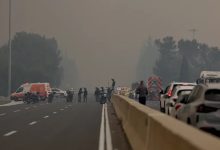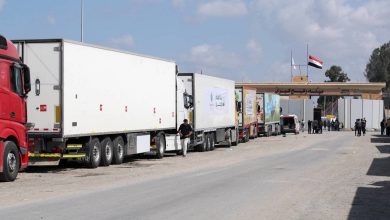Israeli Authorities Issue Travel Warnings Amid Ongoing war: Avoiding Risky Destinations

Watan-Israeli occupation authorities have warned settlers against visiting Turkey and three Arab countries to avoid any retaliatory reactions amidst the ongoing Israeli aggression on Gaza since October 7th last year.
The Israeli National Security Agency (NSH) cautioned Israelis against traveling to the Sinai Peninsula during the upcoming Jewish Passover holiday month, and also warned against visiting Turkey and Arab countries.
According to Israeli newspaper “Yedioth Ahronoth,” the security agency advised Israelis to avoid traveling to Turkey, Morocco, Egypt (including Sinai), and Jordan.
Furthermore, the Israeli security agency warned against traveling to attend the Eurovision Song Contest, scheduled to be held in the city of Malmo, Sweden, next May.
Sinai Beaches
The Hebrew newspaper claimed that since the beginning of the war, there has been a significant increase in what it described as “terrorist threats” against Israelis abroad, including dozens of “terror attacks” worldwide that have already been thwarted in recent months.
An Israeli official speaking to the newspaper emphasized that due to recent global travel warnings, travel to Sinai beaches should be avoided, saying, “There is a considerable degree of potential danger as conditions are not conducive to returning to visit Sinai.”
Possible Risks
According to the Israeli news site “Srugim,” it is still not advisable for Israelis to visit Sinai beaches, stating, “Going to Sinai still involves a considerable degree of potential risk, and conditions are not conducive to returning there safely.”
He noted, however, that there is currently no intention to close the border crossings between Israel and Egypt unless there is a more targeted threat, in which case the public will be warned accordingly.
The Israeli war has displaced 85% of Gaza’s population internally amid severe shortages of food, clean water, and medicines, while 60% of the sector’s infrastructure has been damaged or destroyed, according to the United Nations.





